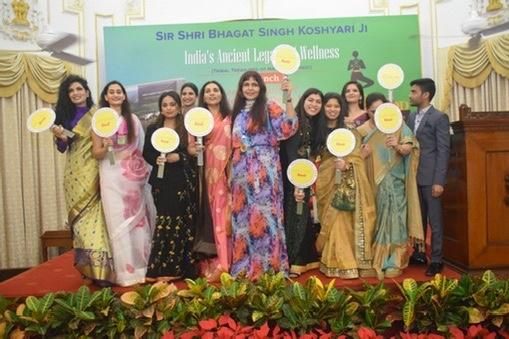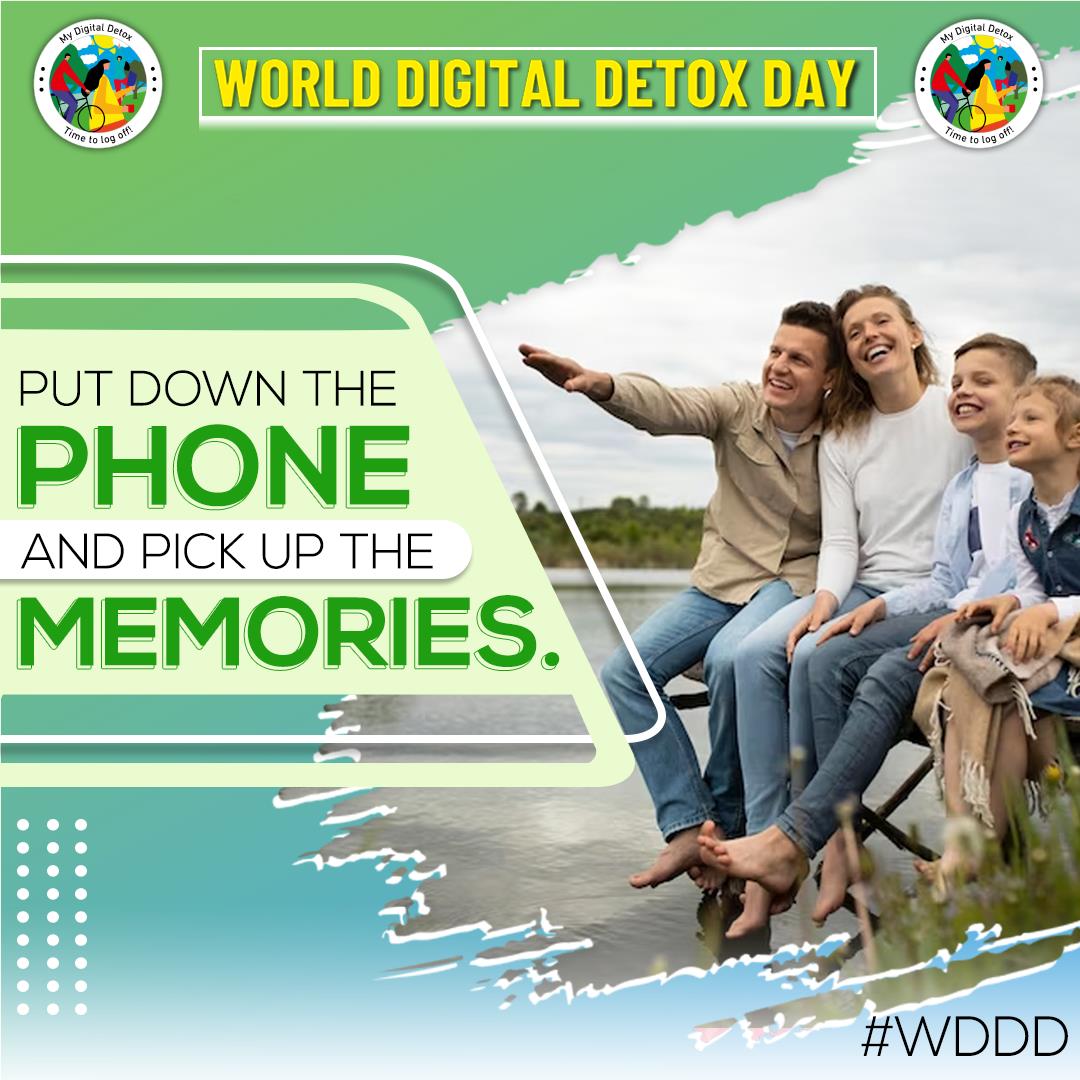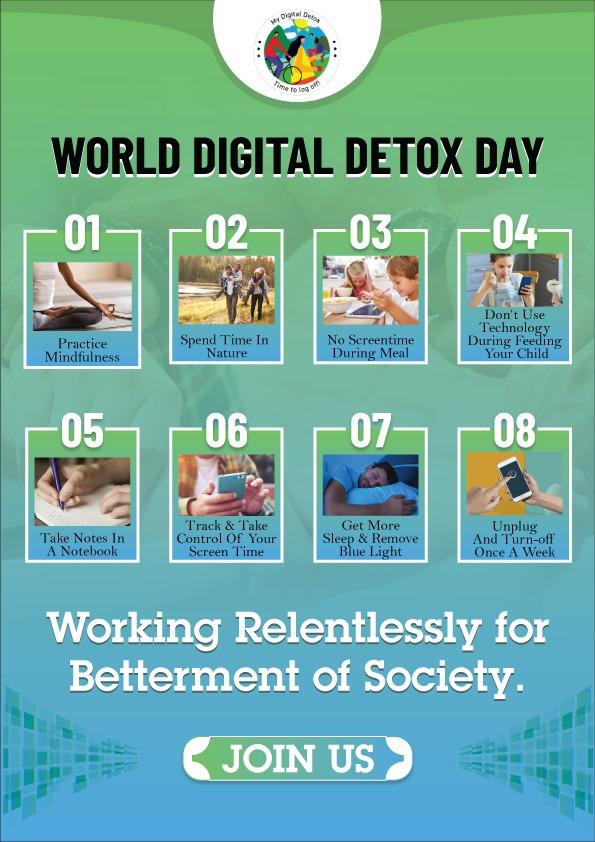By Neha Mehrotra
30-Nov-2023
“The things you used to own, now they own you.” Chuck Palahniuk’s war cry from Fight Club rings truer than ever, as we live a meticulously curated digital life and are constantly tethered to our gadgets. A recent study by the 'State of Mobile 2023' mobile data and analytics firm revealed that, on average, Indians spend 4.9 hours daily on smartphones, mainly on social media and video-sharing apps. The rapid rise of the digital age dictates that the average person reading this will have at least two screens in the room with them, and this growing dependency on gadgets is not healthy for our mental health. World Digital Detox Day, held every year on 10th December, urges people to detach from their digital devices, fostering both mental and digital well-being.
What is World Digital Detox Day?
World Digital Detox Day, led by the Zep Wellness Foundation, is an international awareness day established to promote digital balance and wellness. The annual event held each December 10th serves as a reminder, urging people to reevaluate their screen time and prioritise mental well-being. Founded in India in June 2016 by Dr. Rekha Chaudhari, this movement has evolved into an international force, championing digital wellness and balance for seven impactful years. Now in its third year, World Digital Detox Day focuses on revitalizing meaningful in-person connections and seeks to address the scarcity of human interactions in our increasingly tech-centric world.

Moreover, the WDDD has harnessed the expertise of professionals and global wellness leaders to address the profound impact of digital consumption on our overall well-being and foster meaningful human connections for a healthier life.
What is the Mission?
WDDD's mission is to advocate the responsible usage of technology that aligns with growing concerns related to digital ethics, mindfulness, and other facets of digital life. With the enthusiastic participation of ambassadors from 60 countries, this year’s theme, “Reviving the Art of Personal Connection, promises to be a dynamic and impactful campaign. The theme encourages everyone to write a postcard letter with a wellness digital detox message to their respective country’s Prime Minister. This initiative aims to rekindle the personal touch of handwriting letters to loved ones and urge each country’s leader to prioritise “digital detox” awareness at a national level. Participants are also encouraged to take the WDDD oath together.

The programmes also include Digital Detox Education, aimed at educating youth about the importance of device-free time for mental health and well-being. Moreover, the foundation has provided opportunities for women working in the wellness industry and has positively impacted the lives of thousands of children through various programmes, expert talks, webinars, and counselling services provided by experts worldwide.
Offline is the New Luxury

“Offline Is The New Luxury," the World Digital Detox Day’s (WWDD) slogan, encapsulates the essence of the celebration, emphasising the organisation's commitment to making technology an enriching assistant rather than an energy-draining force. WWDD advocates for a mindful relationship with technology through manifestos that prioritise well-being. These include adopting healthy sleep habits, embracing digital fasting weekly, reducing screen time, maintaining device-free moments during family meals, disconnecting to reconnect with nature, and integrating mindfulness practices into daily routines. These principles guide individuals towards intentional and meaningful engagement in both the digital and real-world spheres, promoting a harmonious coexistence with technology.
Digital Detox and Sustainability
World Digital Detox Day (WDDD) aligns with the United Nations Sustainable Development Goals (SDGs), promoting a sustainable and healthier future. By advocating for balanced technology use, it addresses mental and physical well-being, emphasising the importance of managing screen time for reduced stress. WDDD also supports gender equality by ensuring equal access to digital resources, contributing to the reduction of the digital gender divide. It strives for inclusive technology access, minimising disparities, and fostering healthier communities through real-world connections. Moreover, WDDD has collaborated with various stakeholders to form partnerships for collective progress towards sustainable development.
A Call to Action for Digital Addiction

At the WDDD Centre, individuals can benefit from in-person counselling sessions provided by trained professionals. Community engagement programs and partnerships with wellness centres promote face-to-face interactions and holistic well-being. The Wellness Centre Digital Detox Services Menu offers a diverse range of personalised services, including immersive retreats, yoga, and therapy sessions. WDDD also guides parents to support their children in their battle against addiction and hosts monthly webinars and podcasts led by global experts. The year-long awareness campaign emphasises the importance of mindful screen time. Digital detox challenges and educational resources further encourage a balanced and mindful approach to technology use.

By Shahzeen Shivdasani